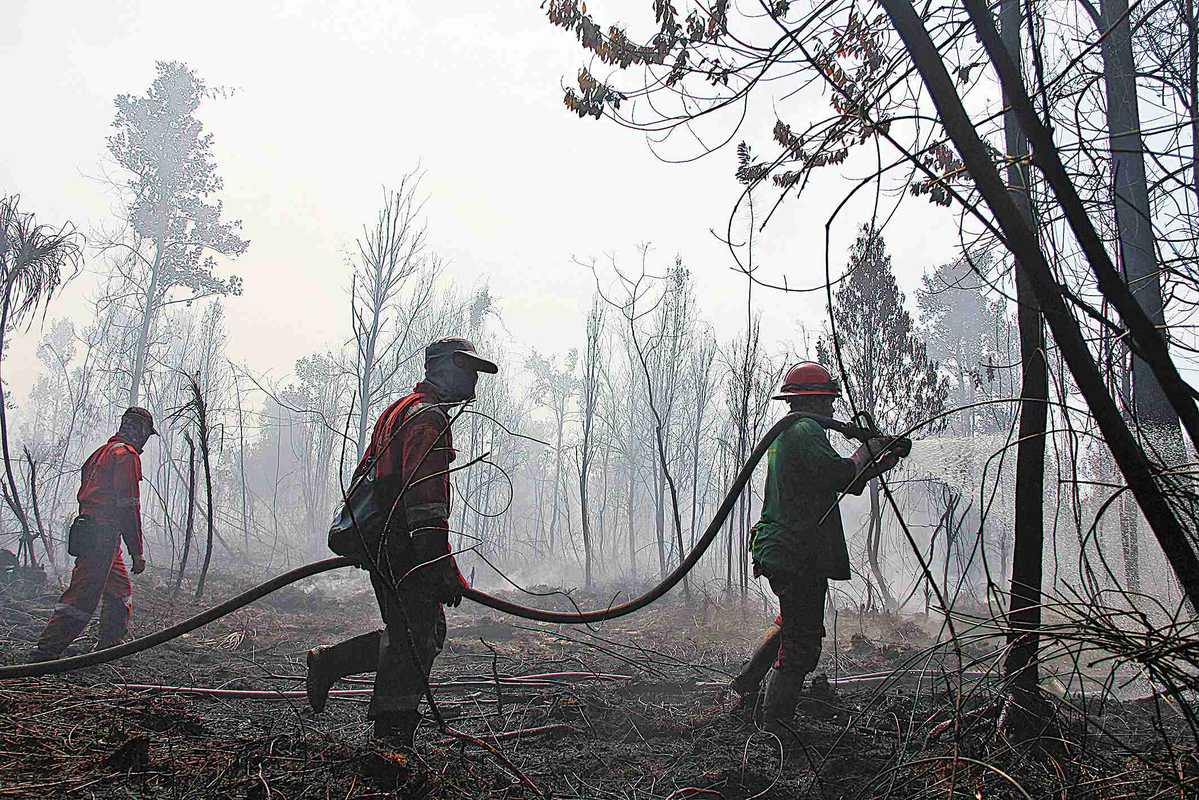Wildfires bring home global threat


Devastation caused by extreme weather offers a grim reminder of the growing risks from climate change
Sue Mark spent most of the summer trapped at her home in Western Canada. With major highways closed, she was unable to leave town to escape the smoke, haze and oppressive temperatures from record wildfires caused by an unprecedented heat wave.
The weather has been particularly extreme in many parts of the world this year, with record high temperatures recorded in North America and Europe and, in turn, more intense wildfires than ever before. Huge fires are burning in virtually every continent (except Antarctica) and the impact is enormous.
As July turned into August, the lush forests in the mountains of British Columbia, Canada's westernmost province, where the weather is generally temperate, were scorched. The small town of Lytton, in BC, recorded the country's highest-ever temperature: 49.6 C.
Shortly after, the town was razed by an out-of-control forest fire. The fire was fed by a deep layer of dryness that facilitated its spread. Towns were evacuated-in the case of the town of Lytton, near where Mark lives, in just 15 minutes. Meanwhile, haze was another problem.
It made it all the way down to Vancouver, 200 kilometers away. The fires continued into last month and are likely to burn further into this month, slowed down only by a delayed rainy season.























